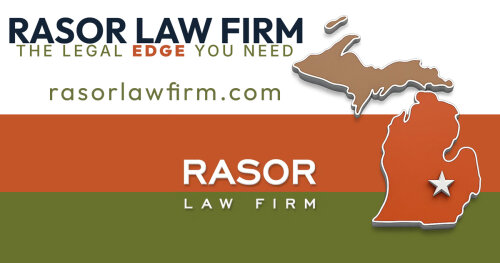Best Defamation Lawyers in Maryland
Share your needs with us, get contacted by law firms.
Free. Takes 2 min.
Or refine your search by selecting a city:
List of the best lawyers in Maryland, United States
About Defamation Law in Maryland, United States
Defamation is a legal concept that addresses harm to a person's reputation due to false statements made by another party. In Maryland, defamation law protects individuals and organizations from unjust damage to their reputation caused by either slander (spoken false statements) or libel (written false statements). To pursue a defamation claim in Maryland, the plaintiff needs to prove that the statement in question was false, made to a third party, and caused harm to their reputation. Maryland law aims to balance protecting reputations and upholding the right to free speech under both state and federal law.
Why You May Need a Lawyer
Defamation cases can be complicated due to the high burden of proof required and the nuances of differentiating between protected speech and defamation. Common situations where legal help is crucial include:
- Your business has been damaged by false reviews or statements.
- You have been the subject of damaging rumors made public in the media or online.
- An employer or former employer has spread harmful, false information affecting your career.
- You are accused of making defamatory statements and need to defend yourself.
- Public figures facing or involved in defamation lawsuits, since different legal standards may apply.
- Cases involving complex evidence, such as social media posts, text messages, or news articles.
An experienced attorney can help you assess your case, gather evidence, ensure compliance with Maryland's legal requirements, and advocate on your behalf in court or settlement negotiations.
Local Laws Overview
In Maryland, defamation law has several unique features worth noting:
- Elements of Defamation: Plaintiffs must prove the statement was false, defamatory, published to a third party, and made with the requisite fault (negligence or actual malice in case of public figures).
- Public vs. Private Figures: Public figures or officials must prove “actual malice,” meaning the statement was made with knowledge of its falsity or reckless disregard for the truth. Private individuals usually must show negligence.
- Statute of Limitations: Defamation claims in Maryland must generally be filed within one year of the defamatory statement being published or spoken.
- Privileges: Certain statements are protected under “privilege,” such as statements made during judicial proceedings and some types of governmental communications.
- Opinion vs. Fact: Maryland courts recognize that pure opinions, as opposed to false statements of fact, are generally protected by the First Amendment.
- Retraction: While Maryland recognizes retractions in some contexts, it is not always a complete defense but may affect damages.
Frequently Asked Questions
What is the difference between slander and libel in Maryland?
Slander refers to spoken false statements that harm someone's reputation, while libel involves written or published false statements. Both are types of defamation, but the medium distinguishes them.
Can opinions be considered defamatory in Maryland?
Generally, pure opinions are protected by the First Amendment and cannot form the basis for a defamation claim. Only false statements of fact can be considered defamatory.
What is the statute of limitations for a defamation claim in Maryland?
You have one year from the date the allegedly defamatory statement was published or made to file a defamation lawsuit in Maryland.
Do I need to prove actual damages to win a defamation case in Maryland?
In most cases, yes. Maryland law requires plaintiffs to show that they suffered actual harm to their reputation. However, in some cases, such as defamation per se (certain particularly egregious statements), damages may be presumed.
Are there any defenses to defamation in Maryland?
Common defenses include truth, privilege (such as statements in court or legislature), opinion, and consent. If any of these apply, the defendant cannot be held liable for defamation.
What happens if the defamatory statement was made anonymously online?
It can be more challenging to pursue legal action, but Maryland courts can order the disclosure of an anonymous poster’s identity under the right circumstances, provided certain legal standards are met.
What should I do if someone has made defamatory statements about me?
Document the statements, preserve any evidence (screenshots, recordings, witnesses), avoid retaliatory action, and consult with a qualified attorney promptly to determine your options.
Can a business sue for defamation in Maryland?
Yes. Businesses have the right to protect their reputation from false and damaging statements, whether posted online, made in advertisements, or spoken.
Is it defamation if the statement was made to just one other person?
Yes. As long as the false statement is communicated to at least one third party other than the plaintiff, it can be considered publication for defamation purposes.
What is “privilege” in defamation cases?
Privilege provides immunity from defamation liability for certain types of statements, such as those made during judicial proceedings or in legislative debates.
Additional Resources
If you are seeking more information or need help with a defamation concern in Maryland, the following resources may be useful:
- Maryland Judicial Branch: Offers information on filing civil claims, including defamation, through the state’s court system.
- Maryland State Bar Association: Provides lawyer referral services and educational materials on defamation and other civil matters.
- Maryland Legal Aid: May assist eligible individuals with legal issues, including defamation cases.
- Office of the Attorney General of Maryland: Can provide consumer protection information and resources relevant to defamation situations.
Next Steps
If you believe you have been defamed or are facing a defamation claim in Maryland, consider the following steps:
- Gather all relevant evidence, including digital records, witness statements, and any documentation of the alleged defamatory statements.
- Avoid engaging the other party directly or making any public statements that could impact your case.
- Consult with a lawyer experienced in Maryland defamation law to evaluate your case and discuss your rights and options.
- If appropriate, your attorney may assist you in negotiating a retraction or correction, or pursuing a lawsuit if necessary.
- Stay informed about deadlines, especially the one-year time limit for filing a defamation claim in Maryland.
Seeking professional legal advice promptly is typically the best way to protect your interests and to determine the most effective strategy for your specific situation.
Lawzana helps you find the best lawyers and law firms in Maryland through a curated and pre-screened list of qualified legal professionals. Our platform offers rankings and detailed profiles of attorneys and law firms, allowing you to compare based on practice areas, including Defamation, experience, and client feedback.
Each profile includes a description of the firm's areas of practice, client reviews, team members and partners, year of establishment, spoken languages, office locations, contact information, social media presence, and any published articles or resources. Most firms on our platform speak English and are experienced in both local and international legal matters.
Get a quote from top-rated law firms in Maryland, United States — quickly, securely, and without unnecessary hassle.
Disclaimer:
The information provided on this page is for general informational purposes only and does not constitute legal advice. While we strive to ensure the accuracy and relevance of the content, legal information may change over time, and interpretations of the law can vary. You should always consult with a qualified legal professional for advice specific to your situation.
We disclaim all liability for actions taken or not taken based on the content of this page. If you believe any information is incorrect or outdated, please contact us, and we will review and update it where appropriate.
Browse defamation law firms by city in Maryland
Refine your search by selecting a city.















